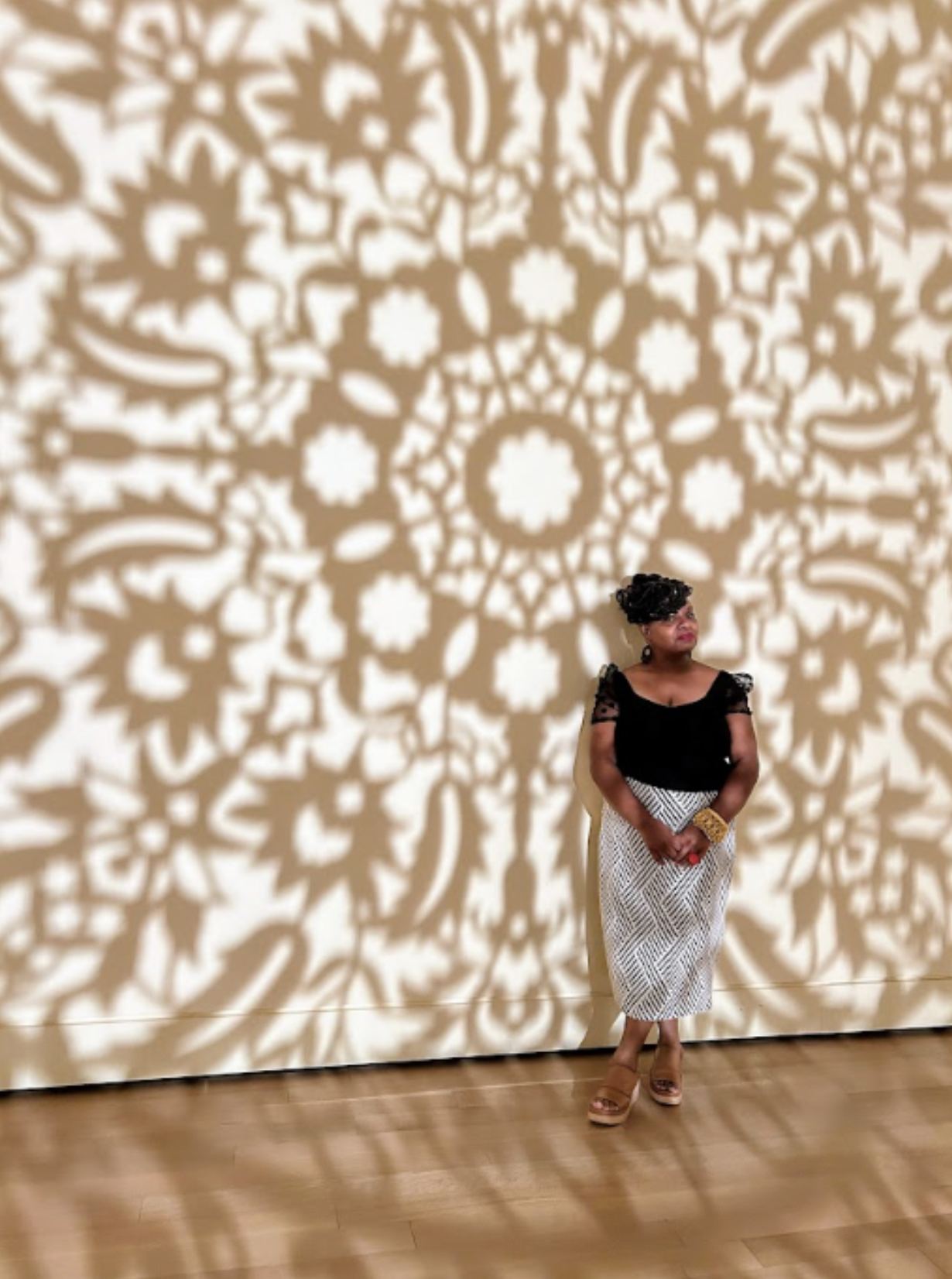Meet Tanya Nixon-Silberg!
Racial Reconciliation and Healing is thrilled to welcome Tanya Nixon-Silberg (she/her) as our Inaugural Artist-in-Residence!
Photo by: Robin Lubbock for WBUR Tanya Nixon-Silberg
The Racial Reconciliation and Healing Project proudly announces Tanya Nixon-Silberg as its inaugural Artist-in-Residence.
Tanya Nixon-Silberg (she/her) is a Black mother, artist, educator, and radical dreamer from Boston, MA. Her work transforms theory into practice, translates complex concepts into meaningful conversation, and invites youth to imagine and build a more just world. She is the founder of Little Uprisings, a creative justice project that partners with institutions serving youth to make racial justice an everyday practice. Her guiding belief—Youth + Art + Justice = Liberation—drives her work toward youth-powered revolutions. She was recently named one of WBUR’s 2025 Makers, recognized for her transformative community-based arts practice, and is currently an Artist for Humanity Fellow, continuing to deepen her exploration of art as a vehicle for social change.
Tanya first served as faculty for the Racial Reconciliation and Healing Project in 2016, an experience she credits as the lynch pin of her artistic and educational practice.
Her time with Racial-Rec deeply shaped her understanding of healing-centered praxis, and the role of imagination in liberation work.
Photo by: Tess Scheflan taken at “Indigo Black” Dye circle
Since then, she has returned to lead workshops with the youth that center storytelling, detecting and disrupting dominant narratives, and reclaiming imagination as a tool for collective healing and justice.
Whatever it is, the way you tell your story online can make all the difference.
As the inaugural Artist-in-Residence, Tanya will collaborate with the Racial-Rec youth to explore the intersections of art, healing, and racial justice. The residency will focus on creating participatory art experiences, cultivating spaces of reflection and dialogue, and developing creative strategies that promote historical understanding and social repair. Through this work, the residency seeks to model how the arts can support collective healing and strengthen community resilience.
This residency brings Tanya’s practice full circle—rooted in the same community where her journey toward art, healing, and racial justice first took shape.
📅 Residency Dates: [October 2025 - June 2026]
🔗 Learn more about Tanya’s work:
https://www.tanyanixonsilberg.com/
https://www.littleuprisings.org/
Photo by: Nicole Dubov in installation by artist Anila Quayyum Agha: “All the Flowers Are for Me” at the Peobody Essex Museum



